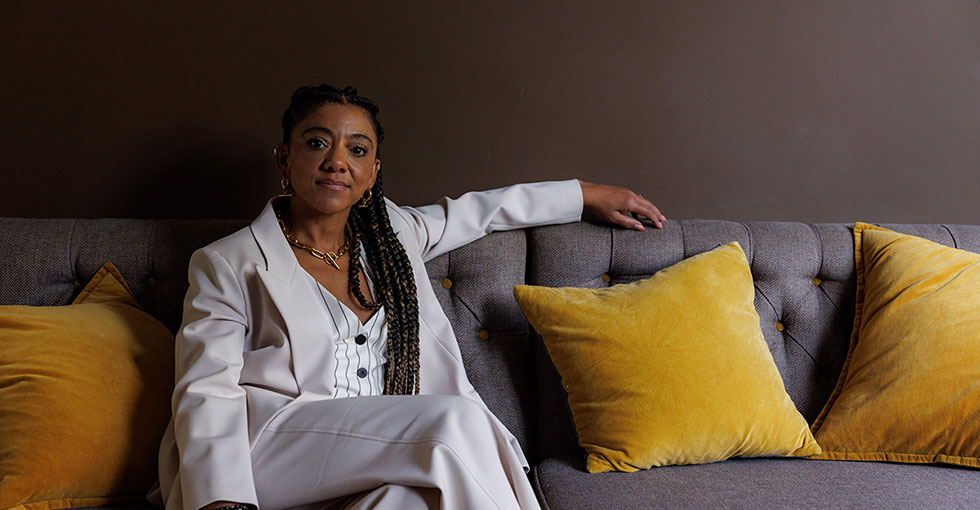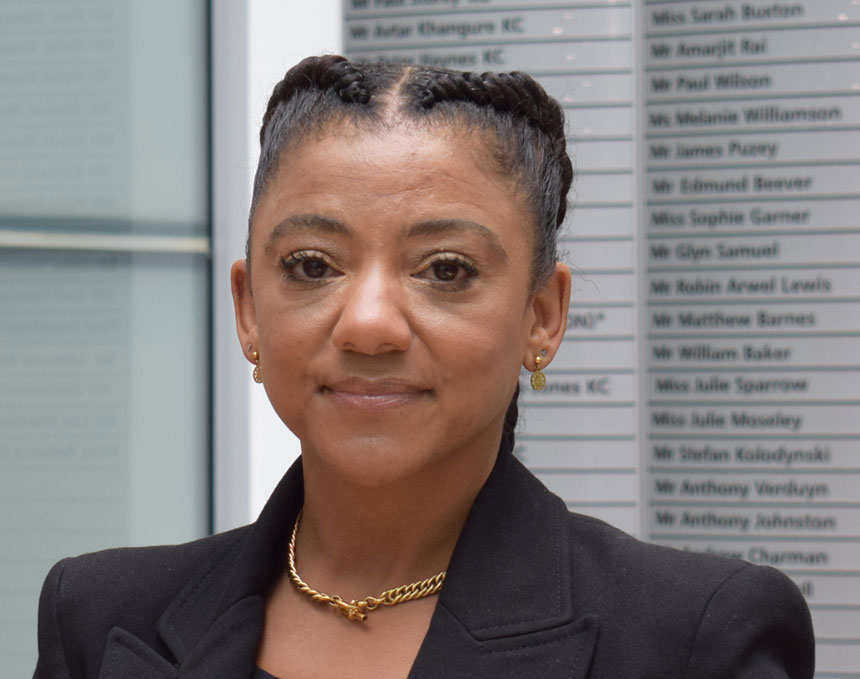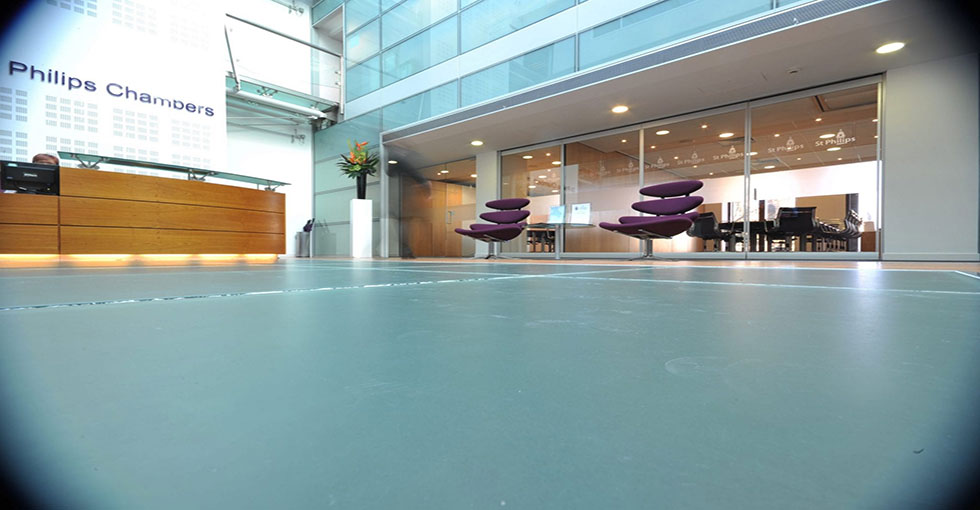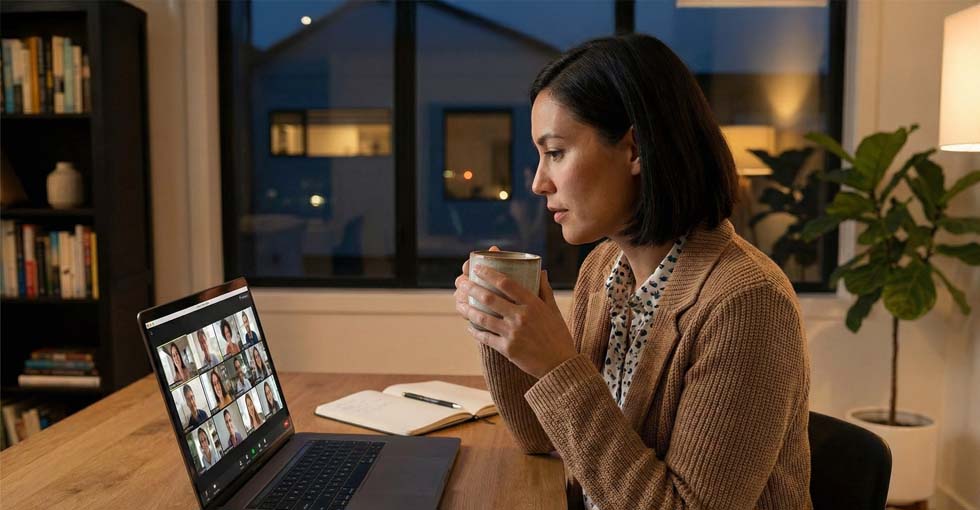Reclaiming Narratives is the theme for this year’s Black History Month which marks a significant shift to recognising and correcting the narratives of Black history and culture. In a testament to that theme, I will endeavour to tell my story honestly here……
Being asked to write an article for Black History Month as a Black barrister is both a blessing and a curse. It is without doubt, a blessing to be given an opportunity to have your individual voice heard on such an important but often unspoken issue within the profession. It is a curse because it stirs up so many emotions and reminds you of all your own personal experiences within your chosen profession, just because of the colour of your skin.
It is a heavy burden to know that you must write something that does not polarise people and instantly encourage them to switch off, as people so often do with uncomfortable subjects. Instead, the aspiration must be that your words will be heard by those who do not sit within your minority group and cause a pause for thought and encourage a desire to have a broader perspective and help contribute to collective change.
The fact remains that if you are Black, this is a profession that does not present itself as welcoming. There is a well-established perception that this it is easier to become a barrister if you are white and from a privileged socio-economic background. Yes, the profession is slowly growing in diversity but not at a rate which reflects Britain today and it is a fact that Black people are still significantly under represented.
Once you enter the profession, the challenges that you face as a young Black barrister will be very different to those of your white counter parts. The well publicised experience of Alexandra Wilson being mistaken for the defendant three times in one day, is one that each and every Black barrister will recognise. All Black barristers have had their own experience of being mistaken for a criminal, a social worker anyone in fact other than the Barrister with conduct of the matter. The micro-aggressions that you face regularly are real, being careful not to be too assertive for fear of being labelled as “aggressive”. Being told by a Judge when cross examining a social worker about systemic racism within a local authority “that your line of questioning is not helpful” or hearing the comment during pupillage interviews “They will help with other ethnic quota and its nice when they are ethnic without being too ethnic if you know what I mean”. Not experiences within my present chambers I hasten to add, but brief examples from far too many of the first-hand experiences that I have had.
One of the hardest things about being a Black barrister is the sense of isolation. There is the complex psychological impact of feeling the human desire to “fit in” and a subconscious decision can often be made to minimise ones “blackness” in an attempt to feel “accepted” which in itself takes its toll and comes with a sense of shame and disloyalty to your roots.
A most troubling reality is the Judiciary is still sadly lacking in diversity with only 1% of Judges being Black, a statistic which has remained unchanged since 2014.
Despite the many challenges that Black barristers face, I am proud and grateful to have had a happy and rewarding career of 25 years at the Bar. I was called to the Bar in 1999 and each and every one of the stereotypical barriers that exist applied in my case. I am the child of a West Indian immigrant who was born and raised in one of the most deprived areas of Kingston, Jamaica and a white British mother. My parents are both working class (my father worked two jobs at times to fund my further education), I attended state school and was the very first person in my wider family to attend University. I did not know anyone within the profession and as a result of my background I was not aware of the many of the additional activities that I could undertake to bolster my CV and improve my chances of gaining pupillage. Nevertheless, I was offered Pupillage at Northampton Chambers, and I was positively supported and trained within pupillage by some of the kindest and most capable members of the profession that I have ever had the privilege to meet. My career has focused on Family Law and I have worked on many complex and high profile cases and I have had the pleasure of being led by some of the most esteemed Kings Counsel in the country and for nearly 10 years was Joint Head of Chambers at Senate House Chambers. Yes, I have faced challenges and experienced difficulties but equally I have had many opportunities and successes, and I sincerely believe that my very presence has made a difference.
Is enough being done to address the inequalities and assist members of the black community in accessing this profession and protecting them from negative experiences when they get here? No. What is required, is profession wide recognition of the fact that these issues exist and need addressing, with some well thought out initiatives to create meaningful and lasting change.
There is, however some clear evidence and a general sense of positive change within the profession. The Black Barristers Network started in 2019, which provides vital support, events, initiatives and programmes. There are many other organisations nationally, doing important work such as the Birmingham Black Lawyers association which started in 2011. I would urge any Black person joining the profession to become a member of these organisations to help insulate against the sense of exclusion that is often felt.
Black people supporting one another within the profession is key, but that is not all that is required. The time for positive change is now and action is required across the profession to create a more inclusive and diverse Bar and Judiciary which are reflective of the society that they aim to serve. The fact that this article and others like it are being requested and published are demonstration of the desire to promote the discussion on improving the experiences of Black people at the Bar and are important.
For any black person thinking of joining this profession and having anxieties that they will not be welcomed, please do not allow yourself to be deterred. Instead be part of the progress and change that is desperately needed. As a Black barrister I can confidently say; We want you. We need you, and so does society.










